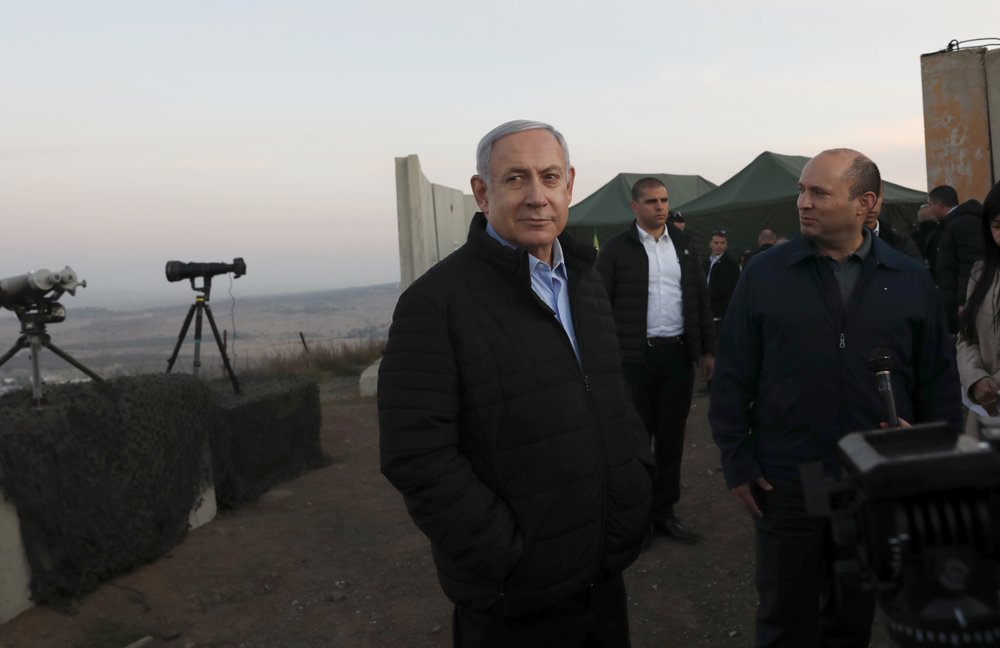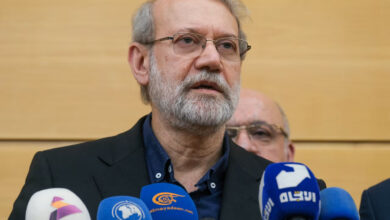
JERUSALEM (AP) — In the first sign of rebellion with Israel’s ruling right-wing Likud, Prime Minister Benjamin Netanyahu’s top party rival called for a leadership primary should the country go into an unprecedented third election in less than a year, as is expected.
Gideon Saar’s remarks came as Israel’s ceremonial president announced that for the first time in the country’s history, no candidate has been able to form a government following recent elections, setting the beleaguered nation on course for yet another vote after two inconclusive results.
Reuven Rivlin formally informed parliament that neither Netanyahu nor his chief challenger, retired military chief Benny Gantz, have completed the task of building a coalition in the time allotted to them. The expiration of the presidential mandate kicks off the final 21-day window before new elections must be called.
Saar, a former aide and senior Cabinet minister under Netanyahu, said he supported the establishment of a unity government to avert such an election, but said he would be a better fit to make that happen than Netanyahu, who faces an expected indictment on corruption charges in the coming days.
“If we go to new elections, it will not be reasonable to think that the prime minister will be successful in forming a government after the third elections,” he said at the Jerusalem Post Diplomatic Conference in Jerusalem. “I think I will be able to form a government, and I think I will be able to unite the country and the nation.”
Netanyahu, Gantz or any other sitting lawmaker can hypothetically present the backing of a majority of parliament’s 120 members in the coming three weeks. But given the prolonged stalemate and unsuccessful mediation efforts it increasingly appears the country is headed toward yet another vote. Opinion polls are already predicting a very similar deadlock, signaling additional months of horse-trading and uncertainty.
The only plausible way out of a third election — and the prolonged political paralysis that has gripped Israel for the past year — would be a unity government between Netanyahu’s ruling Likud and Gantz’s centrist Blue and White party.
Blue and White edged Likud by one seat in the previous election and together they could control a parliamentary majority. Both Netanyahu and Gantz have expressed an overall openness to the concept but during weeks of talks they could not agree on the terms of a power-sharing agreement, including who would serve first as prime minister.
Netanyahu has refused to drop his alliance with smaller nationalist and ultra-Orthodox Jewish parties, which was a non-starter for kingmaker politician Avigdor Lieberman.
But the main sticking point has revolved around Netanyahu himself.
The long-time Israeli leader is desperate to remain in office as he prepares for the expected indictment. Gantz’s Blue and White refuses to sit under Netanyahu while he faces such serious legal problems but has said it has no problem with Likud if he is removed from the equation.
Attorney General Avichai Mandelblit has recommended that Netanyahu be indicted on fraud, breach of trust and bribery charges in three separate cases. Though Netanyahu will not be compelled by law to step down immediately, it will certainly harden opposition to his continued rule.
Reporting by AP
Image: Israeli Prime Minister Benjamin Netanyahu speaks during an extended faction meeting of the right-wing bloc members at the Knesset, in Jerusalem, on Wednesday, Nov. 20 (AP Photo/Oded Balilty)




